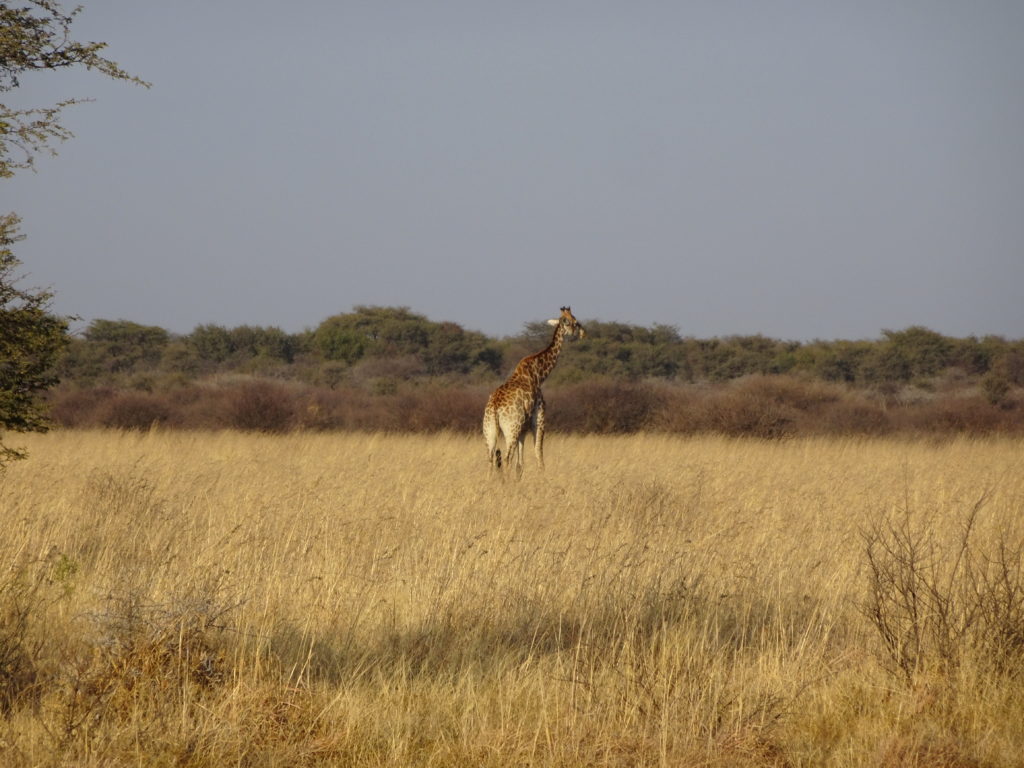Traveling Around Botswana Like a Local
Shaping Cultural Experiences
Travel has been an integral part of my life since I was a young child. I grew up in a multicultural, bilingual home in the Netherlands with a Polish mother and a Dutch father. My
Update & BBC News Link
A brief update: One interview video will be uploaded tomorrow evening. I believe the BBC News One-Minute World News provides well-balanced reporting of news, hence why I wanted to share it. Top stories on May
From Nigeria to Boston
http://www.youtube.com/watch?v=9VNkCazT_T4&feature=youtu.be
When you first meet Oluwagbeminiyi Osidipe, you encounter a very vibrant, friendly, and unique personality. Oluwagbeminiyi or Niyi – as she shortened her name for simplicity – was named by her mother, who had a “very personal experience” when she had her, Niyi explained. Niyi is a Yoruba Nigerian transplant who arrived in the U.S. in 2006. As one of the most densely populated (West) African countries, Nigeria derives its name from the river that spans its land. To the South, it borders the Gulf of Guinea to the Atlantic Ocean. Originally colonized by the British, Nigeria gained independence in 1960. Its main ethnic groups are the Hausa, Igbo and Yoruba, who speak English and their own respective languages, while major religions include Islam, Christianity and indigenous beliefs. Niyi shares her story, her views on politics, cultural differences she’s embraced with humor, and what we can learn from each other by expressing curiosity. Her message is simple: travel enriches us through its exposure to new cultures, and enables us to grow.
Mark Twain on Travel
“Travel is fatal to prejudice, bigotry, and narrow-mindedness, and many of our people need it sorely on these accounts. Broad, wholesome, charitable views of men and things cannot be acquired by vegetating in one little corner of the earth all one’s lifetime.” (American author Mark Twain, Innocents Abroad).
Have you had the opportunity to travel (extensively, within your country, or even once abroad)? Can you relate to Twain’s sentiments? How does travel enrich us?
Pleasing The Taste Palate

Food has the wonderful quality of uniting us no matter where we are. There is nothing partisan or narrow-minded about food. It simply invites us to indulge, create recipes, and share with others. Two of my favorite Polish dishes (included in collage) are pierogies and barszcz czerwony – a beetroot soup – served on Christmas Eve in Poland. How does food bring us together? What are some of your favorite dishes and why? Can food trigger memories?
Stereotypes: Truth or Fiction?
DEFINING STEREOTYPES: “An idea or statement about all of the members of a group or all the instances of a situation.” (Merriam-Webster). Stereotypes enable bias and preconceived notions to perpetuate, but can also reveal valid
Annual Human Rights Report
“The world changed immeasurably over the course of 2011. Across the Middle East, North Africa, and far beyond, citizens stood up to demand respect for human dignity, more promising economic opportunities, greater political liberties, and
Euro Crisis & Emerging Stereotypes
Brief Crisis Breakdown Since the onset of the global financial crisis, or Great Recession, in 2007, the Eurozone has feared impending growing global debt levels, as well as sovereign debt within European countries themselves. In
Remembering Tiananmen
Today marks the 23rd anniversary of Tiananmen Square pro-democracy protests in Beijing, China. Inflation, a lack of career prospects, the fall of Eastern European communism, and political corruption, are all said to have fueled anger
Coffee's Uniting Power
A cup of coffee can bridge cultural gaps. At least, that’s what Gizem Salgicil White, founder of Turkayfe.org, believes. Her organization aims to create awareness of Turkish culture, particularly within America. Gizem is a Turkish native,







Comment (1)
Ryan Biddulph
13 Oct 2018Nele what a special place. We need patience in developing nations but goodness; is it ever worth it. Rocking post.